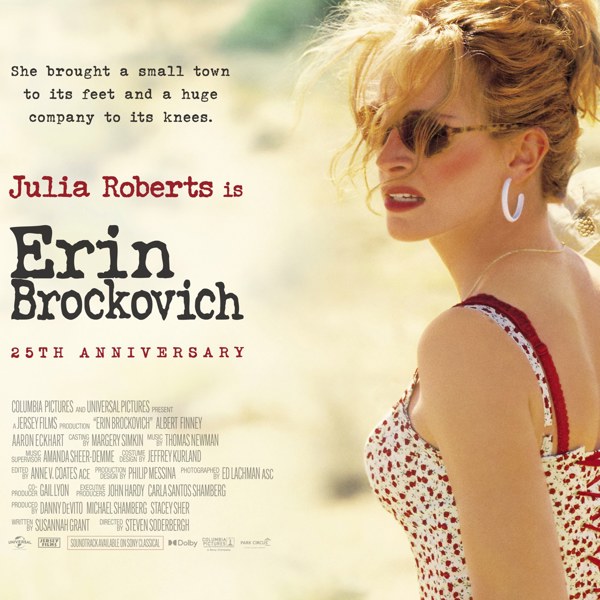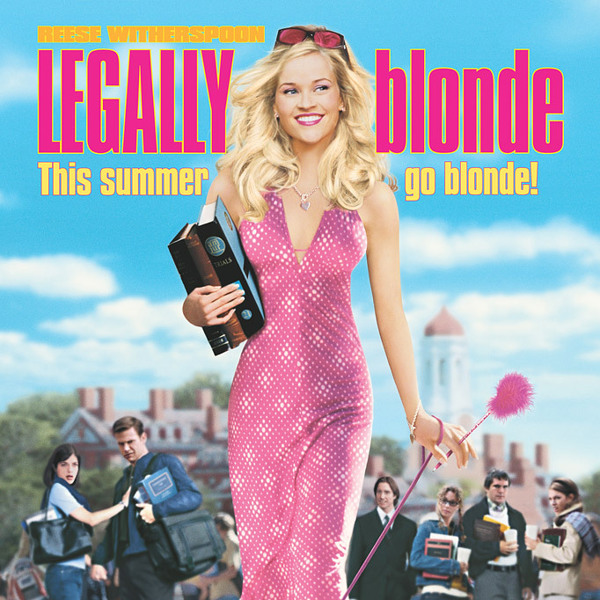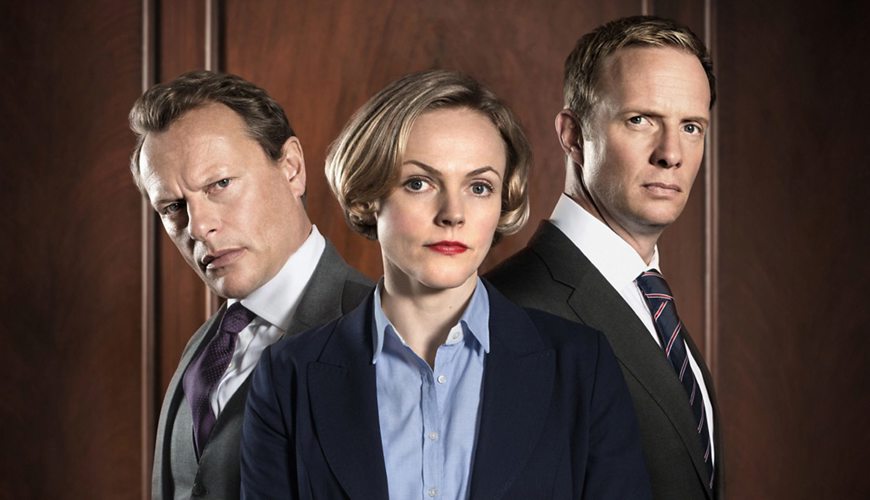15 best legal movies according to Scotland's solicitors - from Legally Blonde to The Paper Chase


The jury is back and the verdict ready. We asked Scotland’s solicitors for the best legal movies and these 15 triumphs of the silver screen made the list.
From courtroom intrigue and jury room fireworks to overcoming stereotypes and standing up for forgotten communities, cinema audiences have been blessed with a catalogue of brilliant legal films.
Earlier this year we asked for the profession’s favourite legal TV dramas and the community responded in style with a list including Ally McBeal, Rumpole of the Bailey and Sutherland’s Law.
Now we turn our attention to the big screen and the 15 greatest legal movies of all time. Thanks to all those solicitors who emailed me and took part in our (somewhat unscientific) poll.
Presented in alphabetical order, here are your 15 favourite legal movies:
12 Angry Men
1957
The jury in a New York City murder trial is frustrated by a single member whose sceptical caution forces them to more carefully consider the evidence before jumping to a hasty verdict.
It’s a remarkable piece of cinema, simply put. A pure idea perfectly realised. Directed by Sidney Lumet and starting Henry Fonda, Lee J. Cobb and Martin Balsam among others, this critique of the US court system and the whole McCarthy era resonates nearly 70 years on.
The trial of an 18-year-old accused of killing his abusive father has just moved to jury deliberations. The teenager is facing a death sentence if convicted unanimously. Henry Fonda’s Juror Number 8, now considered one of the silver screens finest ever characters, spends the 96-runtime corralling, persuading and inspiring the room to throughout their preconceptions. Could it, and would it, have happened in reality? Scholars aren’t convinced. But perhaps what’s more important is the inspiration effect the film had on generations of lawyers. Supreme Court Justice Sonia Sotomayor, for instance, put her decision to pursue a legal career down to the film.
Thanks to Thorsten Lauterbach (who was my contract law tutor at Robert Gordon University) and Phil Addicott among others for this choice.
A Few Good Men
1992
A military lawyer intends to prove that two US Marines charged with murdering a fellow Marine were only following their base commander's orders.
“YOU CAN’T HANDLE THE TRUTH!” Jack Nicholson’s barked response to Tom Cruise’s cross-examination in A Few Good Men goes down as one of Hollywood’s all-time great moments. Nicholson’s Colonel Nathan Jessop goes head-to-head with Cruise’s Lt. Daniel Kaffee in a script penned by none other than Aaron Sorkin of future West Wing stardom.
The plot revolves around the killing of a US Marine private at the force’s Guantanamo Bay base, with Kaffee in the classic ‘hotshot upstart attorney’ role Cruise would rekindle in The Firm. The courtroom scenes are electric and with Demi Moore, Kiefer Sutherland and Kevin Bacon also starring, the cast is stacked too.
Thanks to Elaine Campbell for this vote. And a nod to Rob Reiner as well who’s direction of A Few Good Men came at the end of an eight year stretch in which he released This Is Spinal Tap, The Sure Thing, Stand by Me, The Princess Bride, When Harry Met Sally…, and Misery. What a body of work.
Watch: A Few Good Men | 'YOU CAN'T HANDLE THE TRUTH'
A Time to Kill
1996
A young Mississippi lawyer defends a black man who killed the two white men that raped his preteen daughter.
From one ominous Kiefer Sutherland turn to another, this time in a supporting role as a Ku Klux Klan thug in this stifling, violent John Grisham adaptation. Director by Joel Schumacher and boasting a leading lineup of Matthew McConaughey, Sandra Bullock and Samuel L. Jackson, A Time to Kill was met with mixed critical reaction but a strong box office performance. Grisham himself said: "When all was said and done I was happy with it, happy we were able to find a kid like Matthew McConaughey. It wasn't a great movie, but it was a good one."
It's been the subject of criticism for endorsing vigilantism and in France a question mark was even added to the end of the title to avoid scandalising audiences. Opponents of the adaptation argue it abuses American racial politics to justify personal justice.
Erin Brockovich
2000
A flamboyant law firm secretary works tirelessly to gain justice for a small town wrecked by a utility company's pollution.
The misdeeds of a utility company a blockbuster movie would not make. Or at least, one could forgive producers for presuming so in a pitch meeting. But the Academy Award-winning performance of Julia Roberts in the titular role which weaves comedy, drama and honest heart together opposite Albert Finney’s Edward L. Masry.
The film tells the true story of Brockovich’s battle against the Pacific Gas and Electric Company for it’s role in the Hinkley groundwater contamination scandal. Brockovich herself (who makes a cameo appearance in Steven Soderberg’s adaptation) said the film is ’98 per cent’ accurate. Thanks to Technology lawyer Rahul G. who nominated Erin Brockovich, which is one of my very favourite films and would be my number one pick in this category.
[I would like to give an honourable mention to another film in this vein, 2019’s Dark Waters, a legal thriller starring Mark Ruffalo and exploring the scandal of pharmaceutical company DuPont’s C8 products.]
Kramer vs. Kramer
1978
After his wife leaves him, a work-obsessed Manhattan advertising executive is forced to learn long-neglected parenting skills, but a heated custody battle over the couple's young son deepens the wounds left by the separation.
Perhaps less a legal drama than human one (though aren’t all the best dramas so?), Kramer vs. Kramer was a stellar success on its release. Grossing more than $170m on a budget of just $8m, it was the best-performing film of the year back in 1979 and hoovered up nine Oscar nominations, with give wins including for Best Picture as well as Dustin Hoffman (Best Actor) and Meryl Streep (Best Supporting Actress). The film was a reflection of significant cultural changes in the 70s when attitudes towards parenthood were changing and has been praised for giving the mother and father’s perspective’s equal importance on the screen.
Journal reader Laura Marie Meldrum said: “I think all lawyers can learn from the film and recognise the human impact of what we do.” It should be considered required viewing.
Legally Blonde
2001
Fashionable sorority queen Elle Woods follows her ex-boyfriend to law school, where she discovers that there is more to her than just looks.
I’ll be frank: Legally Blonde was so far ahead of all the other contenders on this list of your favourite legal movies that it may as well have been in another jurisdiction entirely. Robert Luketic’s adaptation of Amanda Brown’s novel was a smash hit at the box office and a turning point in Reese Witherspoon’s career. The actress stole the plaudits for her effortless comedy turn as Elle Woods who shakes of the stereotypes to triumph in style. More than half of those who voted in our (decidedly unscientific) poll, voted for Legally Blonde.
Lauren Wright said: “For me, it’s Legally Blonde – I actually have a framed movie poster of it in my office, above my degree certificates and other qualifications, it’s that important to me.” And Charlotte Platt added: “Got to go for Legally Blonde (and the LegalEagle reaction vid!)”
A final point on that reaction video (which you can watch below): Legally Blonde has always received mixed views from legal scholars for his portrayal of studying law and how it’s applied. Devin Stone, who goes by LegalEagle online, is a Youtuber and American lawyer who picks apart the film in a video essay watched a whopping six million times.
Watch: LegalEagle gives a verdict on Legally Blonde
Misconduct
2016
When an ambitious young lawyer takes on a big case against a powerful and ruthless executive of a large pharmaceutical company, he soon finds himself involved in a case of blackmail and corruption.
This Shintaro Shimosawa picture boasts a cast worthy of a far weightier project. Josh Duhamel (remember him?) stars alongside Anthony Hopkins and Al Pacino but they didn’t win over the jury of critics who branded the film, which received only a limited release, derivative. If you’re after a twisty, turning paint-by-numbers legal thriller with a bit of a 21st century darkness thrown in then grab some popcorn and settle in for the evening.
My Cousin Vinny
1992
Two New Yorkers accused of murder in rural Alabama while on their way back to college call in the help of one of their cousins, a loudmouth lawyer with no trial experience.
If you took Legally Blonde out of the mix, then My Cousin Vinny would have stormed into a comfortable lead based on the volume of emails in my proverbial mailbag. Joe Pesci, Maris Tomei and Ralph Macchio combine perfectly in this fish-out-of-water comedy crime courtroom caper. Tomei picked up the Best Supporting Actress Oscar for her portrayal of Mona Lisa Vito here.
Both a commercial and critical success, My Cousin Vinny continues to receive praise for the accuracy of its courtroom procedure and trial strategy – something which cannot be said for some of the other titles on this list. US federal judge, in Ten Things Every Trial Lawyer Could Learn From Vincent La Guardia Gambini, praised the protagonists courtroom approach as a ‘textbook example’ of Irving Younger’s Ten Commandments of Cross-Examination, and that the film predicted the US Supreme Court’s 1999 decision Kumho Tire Co. Carmichael.
Lindsey Miller wrote in about My Cousin Vinny to say “it makes me laugh every time I watch it”, and Jim added “My Cousin Vinny is surely the only acceptable answer (although I will also allow The Verdict with Paul Newman in top form)”.
The Firm
1993
A young lawyer joins a prestigious law firm only to discover that it has a sinister dark side.
Another John Grisham adaptation makes our list, and another courtroom thriller with Tom Cruise in the leading role (just months after his appearance in A Few Good Men). Directed by Sydney Pollack and with Jeanne Tripplehorn, (an excellent) Holly Hunter, and Gene Hackman alongside Cruise, The Firm is one of my favourite films. Protagonist Mitch McDeere, high-flying Harvard Law School graduate, accepts a big paycheque to join a boutique law firm down in Memphis, Tennessee. It’s only after he arrives that he discovers the firm’s main client is actually [spoiler alert] the mob. Legendary film critic Robert Ebert described The Firm (one of two John Grisham adaptations in 1993 alongside The Pelican Brief) as “virtually an anthology of good small character performances”. Hal Holbrook as a brooding senior partner and David Strathairn as Mitch’s brother Ray both stand out.
Nice bit of movie trivia alongside The Firm – Holly Hunter was nominated for best Supporting Actress at the Oscars for her part private detective secretary Tammy, losing out to Anna Paquin for The Piano, but also winning the Best Actress award at the same ceremony for her part alongside Paquin.
Editor’s Note: The number of mentions John Grisham’s had in this list – and on my own shelves – makes me realise a ‘best legal novels of all time’ poll is probably called for.
The Paper Chase
1973
A first-year law student at Harvard Law School struggles with balancing his coursework and a woman, unaware that she has a connection that affects their relationship.
Starring Timothy Bottoms, Lindsay Wagner and John Houseman, this coming of age comedy-drama is based on John Jay Osborn Jr.’s novel of the same name released two years earlier. Houseman was both an Academy Award and a Golden Globe for his portrayal of law professor Charles W. Kingsfield Jr. who is obsessed with the Socratic method.
Writing in to recommend the film, Stuart Stoker said: “It has to be The Paper Chase, the 1973 movie incorporating an Oscar-winning performance by John Houseman as the law professor. Terrific.” And Anne MacKenzie added: “Always The Paper Chase for me.”
The People vs. Larry Flint
1996
The story of controversial pornography publisher Larry Flynt, and how he became a defender of free speech.
Woody Harrelson, Courtney Love and Edward Norton combine in Milos Forman’s look at 35 years in the career of the titular pornographer and his clashes with the law and religious institutions. So strong was Harrelson’s performance in a film which was critically-acclaimed but commercially not a hit that he was nominated for Best Actor at the Oscars.
The film centres around Flint’s courtroom tussles with Reverend Jerry Falwell and is partly based on the US Supreme Court case Hustler Magazine v. Falwell in which it was held that parodies of public figures, even those intending to cause emotional distress, are protected by the Constitution. Thanks to Shelley Matheson for the recommendation.
The Verdict
1982
An alcoholic Boston lawyer fights a law firm dean.
This is another entry from director Sidney Lumet who also brought us 12 Angry Men. Working this time with Paul Newman in the lead role some 25 years after his staggering jury room achievement, Lumet brings to the screen Barry Reed’s novel of the same name. Newman plays attorney Frank Galvin who is down on his luck and a drunk no working on a medical malpractice case to steady his own situation. But in doing so, he learns he is really doing the right thing. Critics praised Galvin as one of Newman’s finest performances (quite a plaudit) and David Mamet’s script for The Verdict has been named as one of the 101 greatest ever by the Writers’ Guild of America. Thanks to Paul McRobb for this recommendation.
To Kill a Mockingbird
1962
A widowed lawyer in Depression-era Alabama defends a black man against a false rape charge while teaching his young children about the sad reality of prejudice.
There can be few actors so synonymous with one of their characters as Gregory Peck is with Atticus Finch. His portrayal of the widowed southern father and lawyer is a powerhouse performance quite fairly named the greatest movie hero of the 20th century by the American Film Institute (AFI). The AFI also named it their greatest courtroom drama. Released just two years after Harper Lee’s Pulitzer Prize-winning novel of the same name, To Kill a Mockingbird received critical acclaim and Peck the Best Actor Oscar. Critics praised its exploration of racial injustice and moral courage (though Roger Ebert and others have, since, criticised To Kill A Mockingbird’s reliance on a white protagonist to explore the issues). It balances the innocence of the childhoods of Jem and Scout and the dawning understanding of prejudice as they grow.
To Kill a Mockingbird | Atticus Finch's Closing Argument
Win Win
2011
A struggling lawyer and volunteer wrestling coach's chicanery comes back to haunt him when the teenage grandson of the client he has double-crossed comes into his life.
One of the more recent films to make the final list, Win Win stars the ever-watchable Paul Giamatti in the lead role of a comedy drama packed with rich performances from an ensemble also featuring Amy Ryan, Bobby Cannavale and Jeffrey Tambor. When Giamatti’s Mike Flaherty screws over a court-appointed client with early-onset dementia by abandoning him in a home, his chickens come home to roost when the man’s grandson arrives on the scene and on his wrestling team. Journal reader Jill A. described Win Win as “essential viewing for all law students”.
Witness for the Prosecution
1957
A veteran British barrister must defend his client in a murder trial that has surprise after surprise.
‘THE MOST ELECTRIFYING ENTERTAINMENT OF OUR TIME!” is how Witness for the Prosecution’s movie poster rather melodramatically sells the story. Directed by Billy Wilder and adapted alongside Agatha Christie from her 1953 play of the same name, Witness for the Prosecution is a transatlantic take on a British courtroom melodrama released in the same year as 12 Angry Men.
Tyrone Power, Marlene Dietrich and Charles Laughton star in a film which garnered six Oscar nominations including for Best Picture. The film also shares secretive DNA with another of Christie’s most famous works: The Mousetrap. Both in that stage play and here with the screen adaptation of Witness for the Prosecution, audiences are urged to keep the ending secret so as not to spoil the performance for others. It is claimed by some that the secrecy surrounding the tense ending to the film cost Marlene Dietrich an Academy Award. Thanks again to Thorsten Lauterbach for this recommendation.







